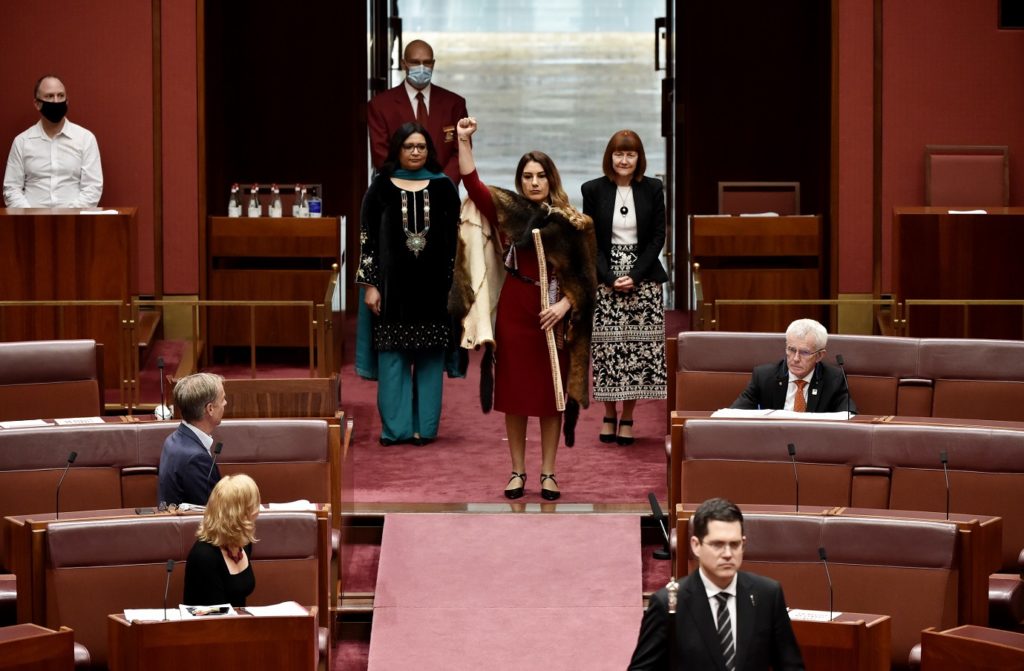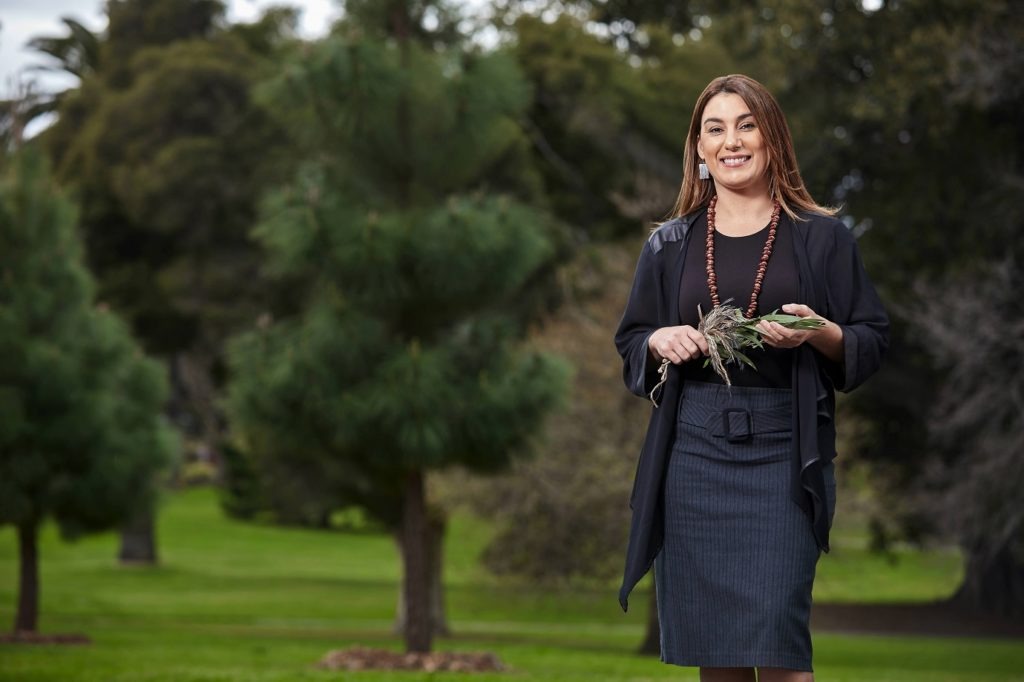Before Senator Lidia Thorpe entered politics, she had no idea whether she had what it took to be a politician.
She’d spent most her life campaigning as an activist, working as a businessperson, and had been focused on driving change outside of the political arena. But it was a conversation with a friend and Nationals MP, Tim Bull, that ultimately set her sights on Parliament.
“I said to him, ‘Tim, how the hell did you become the Minister for Aboriginal Affairs?’” she tells Jacqui Ooi in the latest episode of What She Did Next.
He said, ‘I don’t know, but I am. What do you want me to do?’ And I said, ‘Mate, if you can do that, I can do that.’
“And it kind of inspired me to, yeah, go that extra step further.”
With that, Thorpe, a proud Gunnai Gunditjmara and Djab Wurrung woman, decided to run as a Greens candidate in the Northcote by-election in 2017, making history as the first Aboriginal woman to be elected to the Victorian Parliament.
In the podcast episode, Thorpe shares that she never thought she’d actually win the seat and was taken by surprised when she found out she’d done it.
“I had no idea what I was doing. I just went along for the ride. I was told that we wouldn’t win, so I thought, OK, well, that sounds pretty safe for me, then had an anxiety attack when they told me that we had won.
“I said, ‘You didn’t prepare me for this! What do I do now?’ And they just threw me out there to the wolves and here I am. I loved it. I loved it. I will cherish that experience forever.”
For many people, the image that often springs to mind when they think about Thorpe, is one of her entering the federal Senate chamber for the first time. In October 2020, she made her entrance into the senate cloaked in a traditional possum skin, with her fist raised high in the air, carrying a message stick that had a single mark on it for each of the First Nations people who have died in custody since the Royal Commission into the issue 30 years ago.

“I freaked my staff out when I texted them that morning, saying, ‘Good morning, everybody. Just to let you know I’m putting my fist up today’ and they went into absolute meltdown panic mode because we didn’t know what it would mean,” she said.
“I started off at the Aboriginal Tent Embassy and was welcomed by the Traditional Owners and activists that I’d being growing up with all my life. That took away every fear I had. It gave me strength. It empowered me.
“So by the time I was ready to walk in, I was walking in that place like I owned it.”
Speaking about what federal parliament is like as a workplace, especially in light of the recent events that have exposed the alleged harassment and assault women have experienced, Thorpe says there’s no denying it’s a toxic place for women.
“I’ll be blatantly honest. We all put on these brave faces, us women. No one knows what we’re dealing with inside. It’s been, I must say, the most toxic workplace I’ve ever worked in.
“But I ain’t about to allow these people to represent us in this way, without being challenged, without being called out and without having strong women around me and part of everything that I do.
“If we don’t continue to call it out and fight it and stand together, then we’ll continue to have to deal with it. We can change it.
“We can be the change and the more women that get into these places of power, the more we’re going to have a nation that is truly reflective of the values that it should be reflecting.”
In politics, Thorpe believes her biggest asset is her lived experience, and that more women, especially Indigenous women and other women of colour, need to enter parliament in order to bring forward progress.
“We need more women in these places. We need more women with lived experience to, you know, to tell these old blokes how to run this country in a way that doesn’t leave anyone behind because that’s what we do as women. We look after everybody.”
“When they talk about family violence in that chamber, I know what it’s like. When they talk about poverty in that chamber, I know what that’s like. Racism, you know, being a woman, being a mum, being a grandmother, it’s all lived experience.
“You know, these people read a brief about it. These people go to uni and learn of ways to speak about it. But unless you’ve lived it, you don’t know. And you certainly can’t come up with the solutions if you haven’t lived it.”
It’s working too. Since entering parliament, Thorpe has pushed consistently for a treaty with the First Nations and has brought attention to the urgency of the issue in a way that hasn’t been done before.
“It’s about bringing peace to this country. It’s about having an identity for this country. You know, you ask a lot of Australian people, ‘What is the identity of this country?’ And people really struggle with answering that,” Thorpe explains.
“We are the oldest continuing living culture in the world. I think that’s something to be proud of and something to celebrate.”
For Thorpe, a massive perk of the job is being able to inspire young people – it’s something she says is actually incredible fun.
“It’s fun to hear from young schoolgirls saying that I’m inspiring them. That’s the most amazing feeling you could ever feel…
“I didn’t even realise that, there’s all these young people out there that think that I’m inspiring. So, you know, that’s the difference we can make to young people’s lives.”
Listen to the latest episode of What She Did Next with Senator Lidia Thorpe here, or find the podcast on your favourite podcast app.


